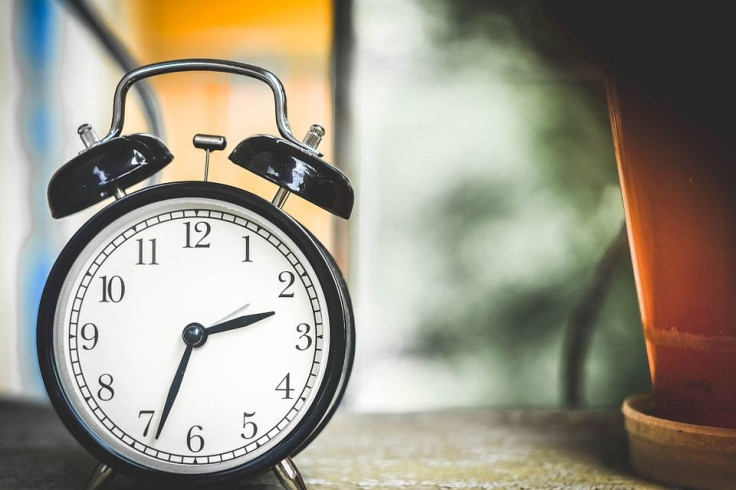How To Survive Daylight Saving Time: 5 Sleep Tips To ‘Spring’ Forward

It’s almost time to "spring forward." On Sunday, March 12, many Americans will turn their clocks one hour ahead for daylight saving time (DST). This lost hour of sleep can leave many of us feeling tired and sluggish. To survive the time change, director of The Sleep to Live Institute, Dr. Robert Oexman, shared sleep tips that will help you feel well-rested.
Read: Daylight Saving Time May Increase Risk For Heart Attack And Stroke: How To Prep For The Change
1. Temperature: “It’s all about temperature,” Oexman told Medical Daily. The optimal temperature is 65-58 degrees. If it’s any cooler than this, he advises to crack a window, unless you have seasonal allergies. “To optimize sleep, we need a drop in our core body temperature to initiate sleep and maintain sleep,” Oexman said. “By exposing our heads to the cool air, it will help reduce our core body temperature.” If you’re too cold, warm up by using as many blankets as needed.
2. Lighting: Ideally, your bedroom should be completely dark. If there’s a lot of natural light in your room, get blackout curtains or wear an eye mask, Oexman recommends. However, if you insist on sleeping with some type of light, he says “low blue lights” are the best night light option. The blue wave spectrum in many lights is what decreases melatonin production at night, however, these specific night lights don’t have that spectrum, he explained.
And as for that laptop, television, cell phone, or whatever other device you have that omits light, remove it from your room, he says. But if you can’t seem to put it down at a reasonable hour, he recommends not using it at least a half hour before sleep, as it disrupts your sleeping pattern.
3. Noise: Eliminate all noise from your room. If this isn’t possible, invest in a white noise machine, which masks all noise both inside and outside your bedroom.
4. Mattress/Pillow: Find the correct mattress and pillow for your body type. The online diagnostic tool, bedMATCH, helps you find a proper match for your unique needs.
5. Separate Sheets and Blankets: If you’re sleeping with a partner, avoid late night disturbances by having your own, separate sheets.
See also: Sleep Deprivation: 5 Ways It Can Affect Your Mind And Body
Daylight Saving Time 2016 Health Pros And Cons, From Extra Hour Of Sleep To Cluster Headaches



























